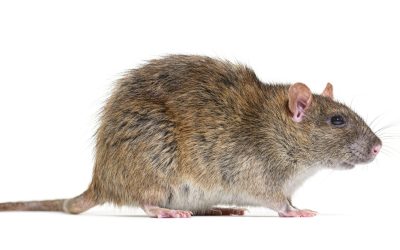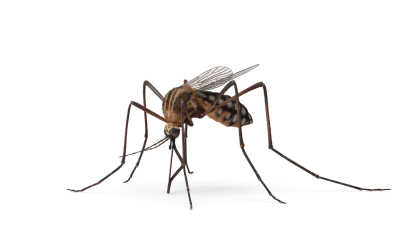Winter pest control is always a good idea, no matter where you live. Pests can cause a lot of damage; in some cases, they can even be deadly. This blog will teach you about the different winter pests that can infest your home, what to do if you see one of them, and how to prevent them from coming inside in the first place. By following these tips, you’ll be able to avoid any pest-related problems this winter!
What Is Winter Pest Control?
Winter pest control is the best way to avoid costly repairs and damage to your home. Pests become more active in cold weather, so it’s crucial to take action before they cause any problems. Common pests that become active in winter include bedbugs, cockroaches, ants, rodents, and birds. These pests can be attracted to colder environments and can cause much damage if they’re not dealt with quickly. Insects like spiders, cockroaches, ants, and mice will start to multiply in the cold weather, so it’s important to keep an eye out for them. Pest control in winter is essential for your home’s protection, and it’s best to get the service done as soon as the temperatures drop.
Rats/Rodents/Mice
Winter is a time of year when rodents are more active. This is because they can survive in colder temperatures and find food more efficiently. Rodents can contaminate food, damage property, and spread disease. You must identify their nests and seal them off using bait or traps to get rid of them. Call a pest control specialist if you’re having trouble dealing with pests. They’ll have the best tools and knowledge to get the job done quickly and efficiently.
Now, let’s look at some Do’s when it comes to managing pets during winter:
Store food in sealed containers
Winter is a time of year when pests are more likely to invade your home. To prevent this, follow these pest control tips:
- Do not store food in open containers on your windowsills or countertops – this is a common way for pests to get into your home.
- Keep all perishables – like fruits and vegetables, milk, eggs, and cheese – sealed in durable plastic bags or containers.
- Cook food completely before storing it away; this will help prevent spoilage and pest infestation.
- Make sure dead insects and rodents are disposed of properly; doing so will reduce the number of pests that can enter your home from the outdoors.
Replace worn weather-stripping around doors and windows
A critical part of pest control is weather stripping, which helps to keep cold air and rain out of your home. It can also help to keep pests from entering through open doors and windows. Be sure to replace weather-stripping around door and window frames, as well as the edges of the panes themselves.
Ensure all cracks in the exterior wall are sealed, so rodents don’t get inside your home. And if you see any pest activity, don’t hesitate to call a pest control professional.
Remove exterior debris
Pests like to live in areas where food is plentiful and warm. Ensure your yard is clean, trim any overgrown vegetation, and remove all exterior debris – including winter dead leaves and branches. This will help reduce the number of pests that can enter your home from the outdoors.
One of the most important steps is to clean out the guttering regularly. This will remove plants, leaves, and other materials that can provide homes for pests. Additionally, cleaning the guttering will remove bugs, rodents, and other pests from the roof and attic. To clean high up, use a ladder to reach places where the debris is located. Be sure to turn off water supplies when cleaning to avoid damage to property or equipment.
Vacuum regularly
One easy way to prevent pest infestation is by keeping your floors dust-free. Vacuum frequently – at least once a week if you have hardwood or tile flooring – to remove insects, moisture, and other pests before they become serious problems.
Regularly clean all pet areas
Pets provide a warm and comfortable home for pests, so keeping your dog or cat area clean is essential. Remove any food or feces left behind, and vacuum often to remove bugs, rodents, and other pests.
Wipe down kitchen surfaces and dispose of ripe produce
In winter, pests come out in force to take advantage of warm, moist conditions. Keep your home pest-free by following these tips:
- Wipe down kitchen surfaces to remove residues from cooking and food handling.
- Discard ripe produce that is overripe or wilted carries pests and bacteria with it and is unsafe to eat.
- Keep your home clean by routinely cleaning floors, countertops, drawers, and other areas where clutter accumulates.
- Check for signs of pests like cockroaches, ants, spiders, mice, or aphids in places where they’re likely to hide (like behind appliances or under the sink).
Now, let’s look at a couple of things that you shouldn’t do during winter when it comes to pest control:
Don’t Allow high humidity in your home
Humidity levels in your home can double during winter, trapping pests and making them harder to control. Install systems that release moisture (such as humidifiers) only when you need them, and take measures to seal cracks and other openings where moisture is entering your home.
High humidity levels encourage the growth of mold and other pests, so it’s crucial to maintain a moisture level below 65%. You can also achieve this by opening windows during warm weather and using air purifiers or dehumidifiers when needed.
Make sure you have an emergency plan in place should your home become overrun by pests – including plans for dealing with ants, spiders, raccoons, and rodents!
Don’t stack firewood against your porch or house
This is a typical winter pest control mistake. Firewood is a natural source of moisture and pests love to nest in the layers of wood. When buying firewood, make sure to check the quality and make sure it’s dried properly. Store it in a dry place out of the reach of raccoons or other animals that might want to chew on it. And, of course, keep your firewood away from buildings, statics, pipes, and other sources of electricity – these are all dangerous places for a fire.
Learn the Signs of Winter Pests
Winter is a time of year when pests come out in droves. From pests in the home like ants, cockroaches and rodents to pests on plants like winter creepers and webworms, it’s essential to know what to look for and how to deal with them. Knowing the signs of winter pest infestation will help you get started. Common signs of winter pest infestation include:
- Brown patches on leaves, twigs, or flowers.
- Small holes in leaves.
- Crickets or moths flying around.
You can treat winter pests using various methods, including spraying pesticides, traps and insecticides.
A bit of preparation can make all the difference when it comes to controlling pests in the winter. By checking for any signs of pests and following some pro tips for pest prevention, you can be sure your home stays pest-free throughout the season.
If you spot an infestation, remember to contact a professional as early as possible. They will treat your house swiftly and ensure that all damage is properly addressed.





0 Comments